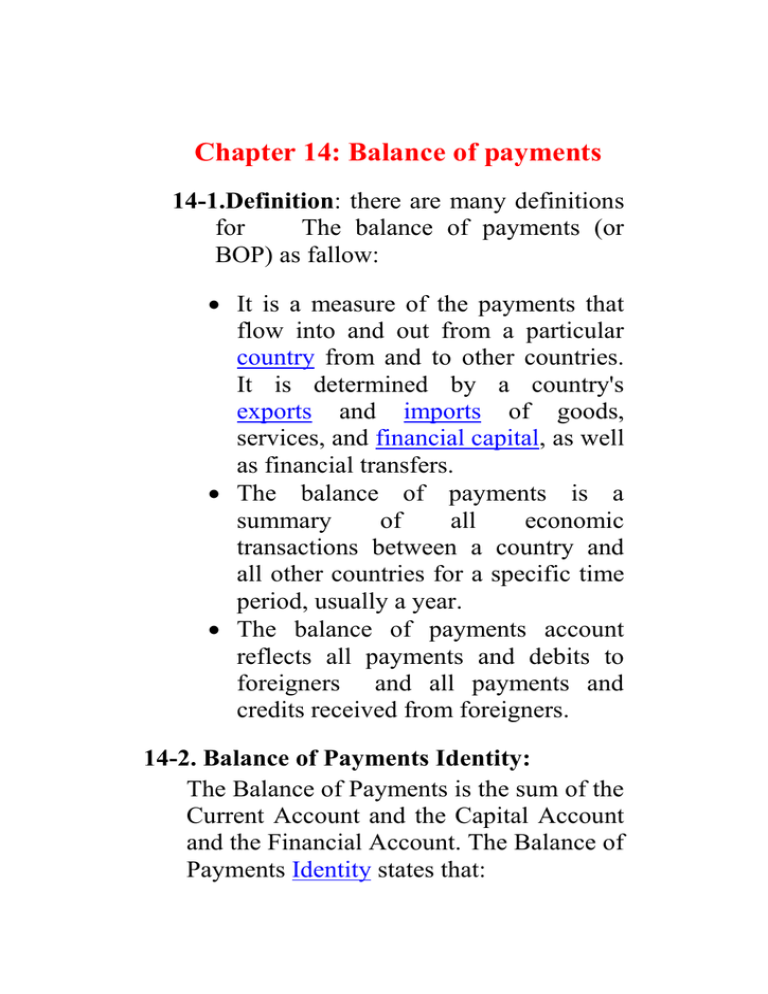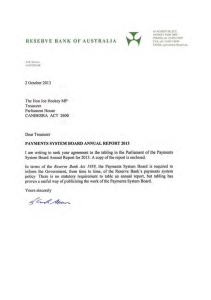Chapter 14: Balance of payments
advertisement

Chapter 14: Balance of payments 14-1.Definition: there are many definitions for The balance of payments (or BOP) as fallow: It is a measure of the payments that flow into and out from a particular country from and to other countries. It is determined by a country's exports and imports of goods, services, and financial capital, as well as financial transfers. The balance of payments is a summary of all economic transactions between a country and all other countries for a specific time period, usually a year. The balance of payments account reflects all payments and debits to foreigners and all payments and credits received from foreigners. 14-2. Balance of Payments Identity: The Balance of Payments is the sum of the Current Account and the Capital Account and the Financial Account. The Balance of Payments Identity states that: Current Account + Capital Account + Financial Account + Net Errors and Omissions = Change in Official Reserve Account 14-3.Negative balance of payments: A country will have a negative balance of payments (a net decrease in official reserves, net errors and omissions, or some combination) if the net of the current account, the capital account and the financial account is a deficit. 14-4.Positive balance of payments: There will be a positive balance of payments (a net increase in official reserves, net errors and omission, or some combination) if the net of the current, the financial and the capital account results in a surplus. 14-5. Components of balance of payments: The Balance of Payments for a country is the sum of the current account, the financial account and the capital account, and the change in official reserves: 14-5.1. Current account: The current account is the sum of net sales from trade in goods and services, net factor income (such as interest payments from abroad), and net unilateral transfers from abroad. Current account = Trade Balance Net Exports (Exports - Imports) of goods Net Exports (Exports - Imports) of Services + Net Factor Income From Abroad + Net Unilateral Transfers From Abroad financial 14-5.2. Financial account: The account is the net change in foreign ownership of domestic financial assets. If foreign ownership of domestic financial assets has increased more quickly than domestic ownership of foreign assets in a given year, then the domestic country has a financial account surplus. On the other hand, if domestic ownership of foreign financial assets has increased more quickly than foreign ownership of domestic assets, then the domestic country has a financial account deficit. Financial account = Increase in foreign ownership of domestic assets - Increase of domestic ownership of foreign assets.


